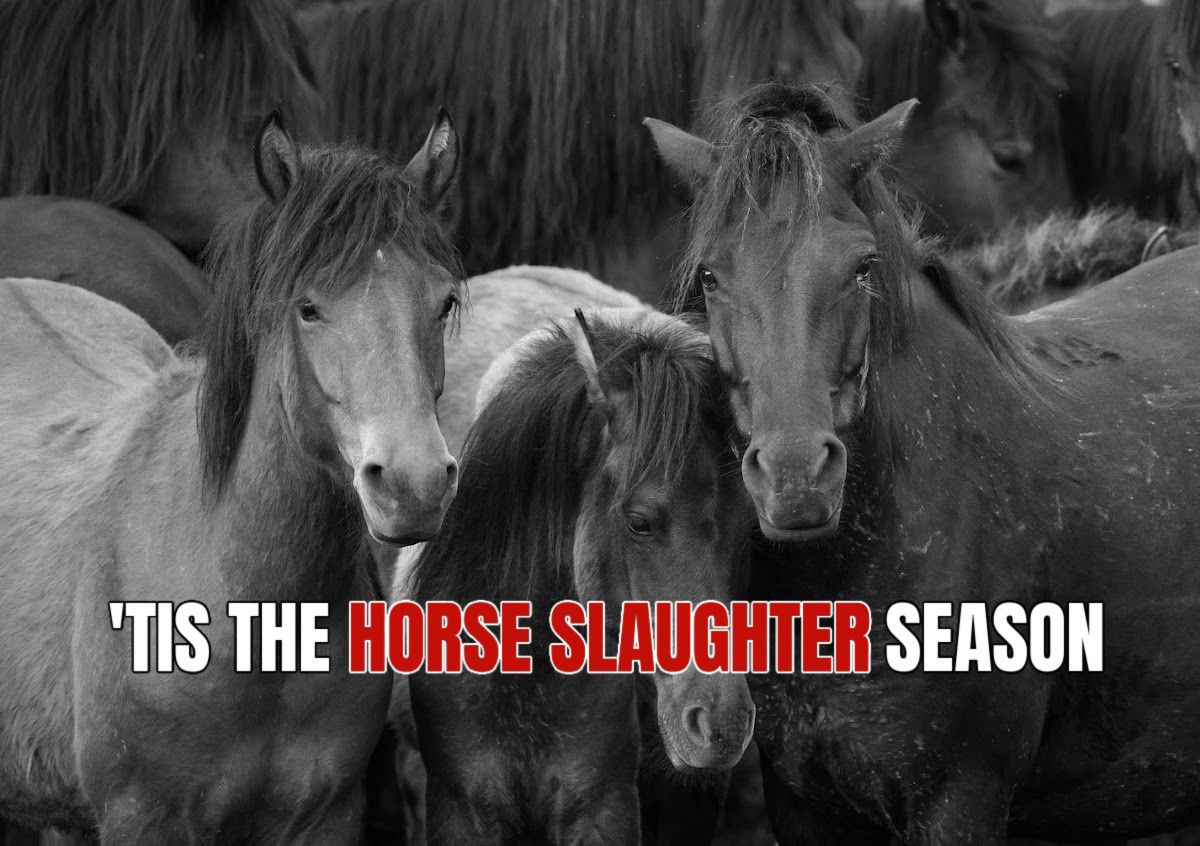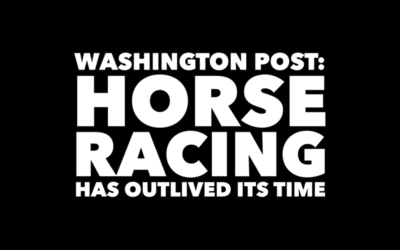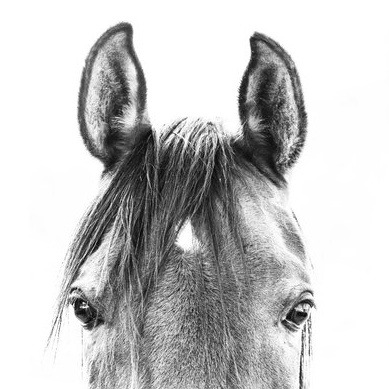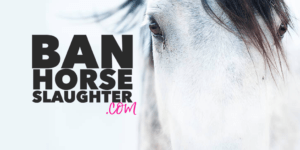SENATOR BLACK APPROVES
HORSES BEING SHIPPED TO SLAUGHTER?
Updated November 22, 2024:
Watching and reading the continued Second Reading of Bill C-355 in the Senate it certainly appears that the Bill will go to Committee. Sadly, it also appears the Chair of that committee, Senator Rob Black is opposed to the Bill passing.
The Honourable Robert Black has extensive experience in the rural, agricultural, and leadership sectors. He currently serves as Chair of the Senate Standing Committee on Agriculture and Forestry.
New evidence has come to light since Senator Black first questioned the validity of Bill C-355 during the first session of the second reading in the Senate.
Perhaps we can change his perspective.
Before we get into the new evidence it may also be important to note…
Senator Black has been photographed several times with Kevin Wilson [including here].

According to Ontario Farming magazine, “Kevin Wilson’s diversified farming operation in Vankleek Hill, Ontario, handles the majority of these exports.”
(“These exports” refers specifically to horses exported from Canada to Japan for slaughter or to be fattened for slaughter for human consumption).
We will continue to contact Senator Black’s office, even though requests for a response have gone unanswered.
BACKGROUND/UPDATE BILL C-355
Bill C-355 – a bill to ban the export of horses from Canada for the purpose of slaughter by air or to be fattened for slaughter passed through Parliament and is now in the hands of Canada’s Senators.
Senators are appointed by the Governor General at the suggestion of the Prime Minister and serve until they choose to retire — or until they reach the age of 75.
Currently, there are Senators in the Canadian Senate serving because of three different Prime Ministers including Conservative PM Harper.
Bill C-355 was “read” in the Senate on Tuesday, May 21, 2024.
The Second Reading and first real discussion about the bill in the Senate happened on Tuesday, May 28, 2024, before the summer recess.
Watch the May 28, 2024, Second Reading here..
The Second Reading continued on November 7 and November 21, 2024.
SENATOR BLACK’S DEBATE POINTS:
Hon. Robert Black (to Senator Dalphond): Thank you. Honourable colleague, according to the Canadian Food Inspection Agency, there have been only five horse deaths related to air shipments to Japan since 2013.
Approximately 47,000 horses have been transported during that period, with the mortality rate therefore being 0.011%.
New documentation proves otherwise…
Again, perhaps we can change Senator Black’s perspective.
To meet Japan’s requirements, horses must be born and raised in Canada or have been kept in Canada for at least six months prior to the start of pre-export isolation, and all horses exported to Japan require several vaccinations and blood tests.
The horses are also required to be isolated from animals that are not being exported.
The animal disease history of the premises where the horses are kept must also be known and be kept with the animal.
Horse health is monitored every step of the way and is of the utmost priority for industry and government alike.
Senator, are you aware that there have been no reported fatalities or injuries related to horse air transport, according to your government? [Sadly that turns out NOT to be the case.]
Again, Senator Black is mistaken on several counts.
Draft horses destined for slaughter in Japan are trucked in all seasons, so in extreme heat and cold, from feedlots in western Canada and from Ontario to the Winnipeg and Edmonton airports.
Once at the airport the way in which horses are transported by air for the purpose of slaughter in no way shape or form resembles how show or sport horses are carefully transported.
Horses destined for slaughter are crammed 3 to 4 to a wooden crate – designed for 1 horse — and transported for over 24 hours without food, water, vet care or rest. Flights are NOT direct which means horses must navigate multiple take offs and landings.
A recent investigation by Animal Justice and Japan-based Life Investigation Agency (LIA) shows that most shipments exceed the 28-hour legal limit, leaving horses to endure “unimaginable and prolonged suffering”.
Keep in mind that allowed 28-hour limit is time in the air without food or water or vet care and does NOT include time on the ground while being shipped or waiting to be loaded or unloaded at the airport, either in either Canada — and in this case — Japan.
Since this debate, other facts have come to light.
An investigation by Animal Justice in Canada and Japan-based Life Investigation Agency (LIA) shows that horses shipped to Japan are becoming injured, developing illnesses, and even dying during and in the hours and days after transport.
Between June 2023 and May 2024 alone, at least 21 horses died as a result of the conditions of transport to Japan. In Senator Black’s defence, none of these injuries, illnesses, or deaths were reported to Canadian officials.
Senator Dalphond: Thank you for the question, Senator Black.
As you said, you referred to statistics.
Statistics show there is not a high number, but there’s some death.
There’s also a certain number of injuries to horses.
The point of this bill is to stop a practice which brings a lot of stress, distress and harmful consequences to live horses that can be avoided by shipping horsemeat.
This bill is not meant to kill the horsemeat business.
It’s meant to make sure that we don’t expose horses to travel that starts at the breeder’s place and ends up in Japan 24 hours later, with no feed, no water and no looking after these horses during that whole period. That’s the issue here.
Do we want to continue that practice? We receive about $5,000 to $6,000 for each of these horses. Is that the price we’re ready to pay to preserve $5,000 for the breeder? That’s the issue.
Maybe it’s time for Senator Black to watch the expose on the shipping of horses to slaughter by air produced by W5.
Senator Dalphond: I’m sure you will think it’s a “woke” answer to tell you to look at some of the videos that you can find on websites.
You will see them at the airport in Winnipeg; you will see how they are treated in other airports.
You will hear from some of the people who testified before the Agriculture Committee in the other place.
I’m sure our committee — most likely it will be the Agriculture Committee — and you, Senator Black, will be asking all the proper questions of witnesses.
Of course as advocates for horses in Canada know not all the horses shipped by air to be slaughtered for human consumption are “purpose-bred”.
According to an Ontario Farmer Magazine article Kevin Wilson, a stakeholder and Percheron breeder who competes in horse shows and has lobbied for this barbaric practice to continue stated:
“Japan…” “is a great export market, adding value to farmers for Canada’s surplus horses…”
Note, Kevin Wilson states SURPLUS horses.
Does the fact that some think an 18-month transition period being allowed before this barbaric practice is potentially banned is not long enough, make it okay to keep subjecting horses to these inhumane shipments? Our board thinks it is far too generous.
Senator Dalphond replies:
Yes, I’m aware of that. However, 18 months is a long period of transition.
There’s a market for these horses. It depends.
Some breeders just send one to Japan out of a larger lot. The rest are sent for horsemeat. Others are being used for other purposes. Yes, it will have to change.
We send between 2,000 and 2,500 per year, except three years ago, when it was 1,700.
It’s not a huge quantity of horses, sir.
I’m sure there’s space in the market to have them shipped to other parts.
As I said in my speech, horsemeat as a trade represents twice as much in value to export.
It’s not the same type of horses that end up in horsemeat. They are normally very young horses.
There are other ways for those who don’t want to have them sent to a slaughterhouse in Japan but to a slaughterhouse in Canada where it’s legal to slaughter horses.
Colleague, are you aware that horses have the amazing ability to sleep standing up? They don’t have to sleep lying down. I’d like to correct some of the misinformation that you shared with us earlier.
Research indicates that while horses can achieve light sleep while standing, they need to lie down to enter Rapid Eye Movement (REM) sleep, which is crucial for their overall health and brain function. The stay apparatus in a horse’s limbs allows them to lock their legs and rest without collapsing, a behaviour developed as a survival mechanism to remain alert to predators. However, REM sleep requires full muscle relaxation, something that only happens when a horse is lying down.
On average, horses need about 30 minutes to 2 hours of REM sleep every 24 hours, which they usually obtain in short bursts.
Factors like social dynamics, inadequate space, or physical discomfort can prevent them from lying down and achieving necessary REM sleep. Prolonged deprivation of REM sleep can lead to symptoms such as fatigue, irritability, and even collapse from exhaustion.
Ensuring a safe, comfortable, and secure environment helps horses fulfill their need for lying-down sleep, reducing the risk of sleep deprivation and its negative consequences. For more detailed explanations and additional factors influencing horse sleep, you can explore resources from Kentucky Equine Research and The Equine Institute.
We would also like to state how important it is that horses get the appropriate amount of water and the consequences if they don’t.
Although Percherons and Belgians are more frequently shipped by air to slaughter than for example Clydesdales (made famous by Budweiser), the Budweiser Clydesdales drink approximately 30 gallons of water per day. The breeds shipped are at least as large as a Clydesdale — if not 200 pounds heavier…
Yet, horses shipped to slaughter are denied water during the flights which we know are allowed to be 28 hours – not including ground transport and time waiting and unloading on the ground – AND have routinely exceeded that.
Most people who have travelled with their horses to horse shows or competitions or other activities can attest to the fact that horses are notoriously hard to get to drink when away from home. Horses often refuse to drink unfamiliar water sources, leading to rapid dehydration and or colic (severe intestinal pain).
At the very least dehydration causes muscle cramping, weakness and extreme fatigue.
Most who show or compete with our horses provide water at least every four hours while transporting and wet hay while on the road.
Horses being transported by air for the purpose of slaughter often travel long distances even before getting to the airport and then are often subjected to 28 hours – or longer – without food or water.
BILL C-355 IN THE HANDS OF CANADIAN SENATORS
Even though not a single member of the Conservative Party was willing to vote in favour of Bill C-355 -- and every step of the way Conservatives fought to block Bill C-355 - designed to ban the export of horses for slaughter...
The Liberal Party persisted and Bill C-355 has now passed through Parliament - it is out of the hands of the Prime Minister and Members of Parliament and it is in the hands of Canadian Senators.
Would you, could you, take a few minutes this holiday season to send 11 individual emails to the Senators who serve on the Senate Committee on Agriculture and Forestry?
(OR FILL OUT A 30 SECOND FORM LETTER?)
After watching hours of presentations in the Senate, reading and re-reading transcripts we know those opposing the bill AND those in favour of the bill are assuming it will go to Committee after the break for the holidays. So we need to make noise – NOW.

T-SHIRTS IN SUPPORT OF HORSE RESCUE FUND
LIMITED TIME OFFER FREE SHIPPING CANADA & USA
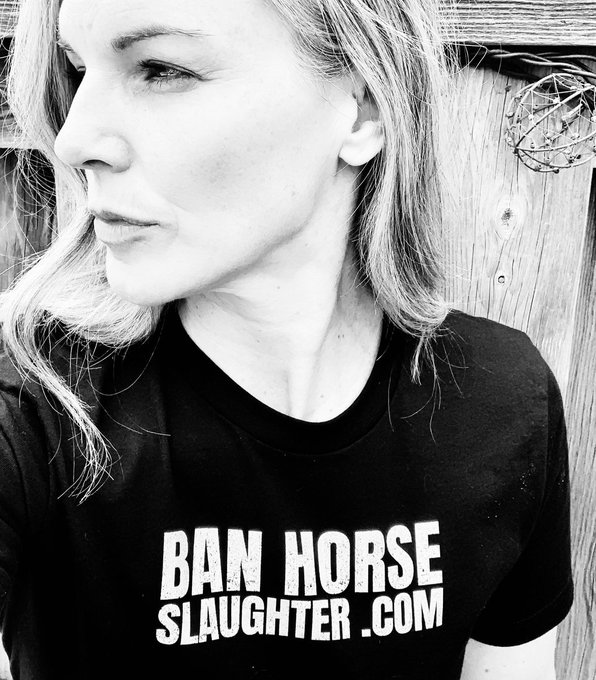
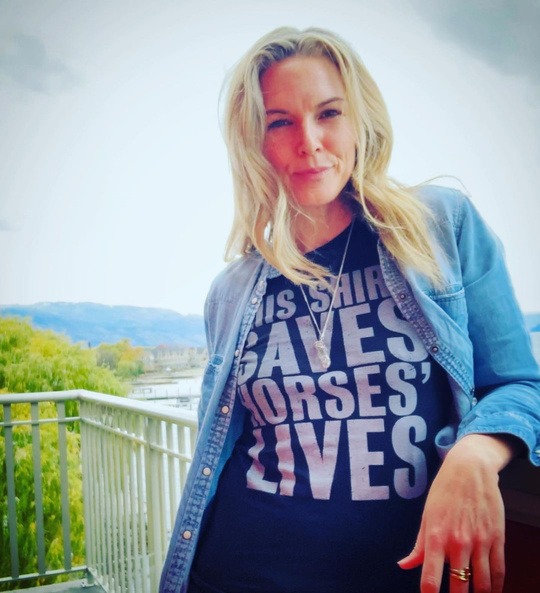
CANADA SLAUGHTERS HORSES FOR HUMAN CONSUMPTION
It may be hard for some to believe that tens of thousands of horses, including pets, are routinely slaughtered in Canada, for human consumption.
Some of the meat is consumed in Canada and much of it is shipped to the European Union and other markets, including Japan.
The barbaric slaughter of horses is currently not legal in the United States, BUT horses, including pets and ex-racehorses, from the United States are shipped to Canada and to Mexico to be slaughtered.
In addition Canada allows for the transportation of live horses to Japan, to be slaughtered for human consumption, and unfortunately the transportation of horses destined for slaughter within Canada, and by air, is far from humane.
This Shirt Saves Horses’ Lives
UPDTE NOVEMBER 2021: Back for the first time since JUNE of 2020. Once again available for a limited time. Proceeds from this t-shirt go to helping our friends at Horse Rescue Fund. Horse Rescue Fund is dedicated to raising funds and distributing those funds to...
HORSE RACING HAS OUTLIVED ITS TIME
THE WASHINGTON POST - OPINION MARCH 13, 2020 - By Editorial BoardIN THE aftermath of federal indictments that charged more than two dozen people in or associated with horse racing in “a widespread, corrupt” doping scheme, the industry rushed to put on a good face. The...
A SPORT THAT GAMBLES WITH HORSES’ LIVES
THE WASHINGTON POST - OPINION DOES A SPORT THAT GAMBLES WITH THE LIVES OF HORSES REALLY BELONG IN OUR WORLD? JANUARY 25, 2020 - By Editorial BoardTHE DEATHS of nearly two dozen horses last year at Santa Anita Park in California caused the famed racetrack to close for...





